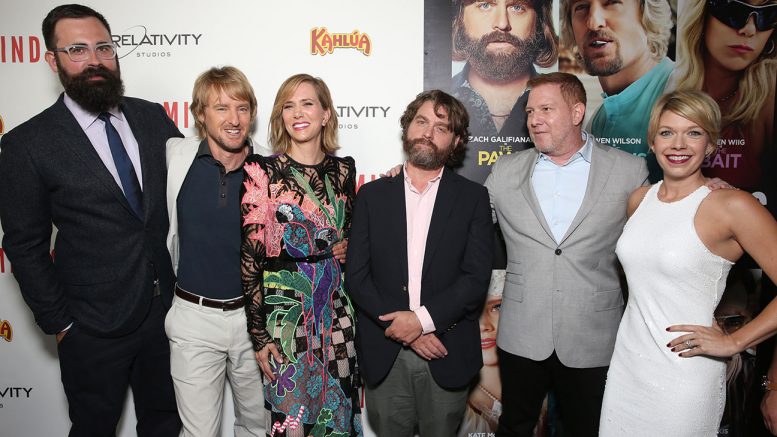Relativity has gotten past the first stage in its massive lawsuit against Netflix, but not without a couple of major chops from a Santa Clara Superior Court judge. At a court hearing late last week, Relativity was permitted to move forward on a claim that Netflix breached contract, but had its fair dealing claim as well as a trade libel one stricken.
The two companies go way back.
Back in 2010, when Netflix was transforming itself from a DVD-by-mail company, Relativity was the first big studio to allow its films to be streamed. Relativity got hundreds of millions of dollars for this, but the arrangement has become less valuable for Netflix over time.
After the Ryan Kavanaugh-led studio declared Chapter 11, Netflix made moves that Relativity argued was an attempt to evade the lucrative license agreement. In particular, the streaming giant refused to sign customary amendments, and what was later deemed to be an act of bad faith, demanded the right to immediately stream Masterminds and The Disappointments Room before theatrical release.
Relativity won some rounds in bankruptcy, but it continues to endure tremendous hardship after emerging from Chapter 11. The studio now blames Netflix for some of its troubles.
In reaction to the lawsuit, Netflix brought an anti-SLAPP motion.
Santa Clara judge Theodore Zayner ruled at the hearing that Netflix could not immediately defeat a breach of contract claim. He concluded that Netflix hadn’t shown that such a claim arose from protected activity.
While Netflix wasn’t able to show that a demand for private arbitration over its streaming rights was protected by litigation privilege, it was more successful on two other claims arising from activity stemming from the bankruptcy case — specifically, doubts that Netflix raised about Relativity’s ability to distribute Masterminds and The Disappointments Room.
As such, Zayner looked to see whether Relativity had a probability of success on those claims.
He rules that a cause of action for breach of the implied covenant of good faith and fair dealing falls short because it’s largely duplicative of the contract claim.
As for trade libel, the judge writes, “Plaintiff is not in the service industry, it expressly states that it produces and distributes products — films. Therefore to state a claim for trade libel it would have to allege that Defendant disparaged the quality of its films…not the viability of its business model or its ability to produce films. While statements disparaging Plaintiff’s ability to produce its products might theoretically support a claim for libel or defamation of Plaintiff itself or a claim for intentional interference with prospective economic relations, they simply do not constitute Trade Libel.”
Relativity originally demanded $1.5 billion in damages, but if this case is strictly about the license contract, it will struggle to get anything near that amount, even if successful.
Source: www.hollywoodreporter.com





Be the first to comment on "Judge Trims Relativity’s $1.5 Billion Lawsuit Against Netflix"